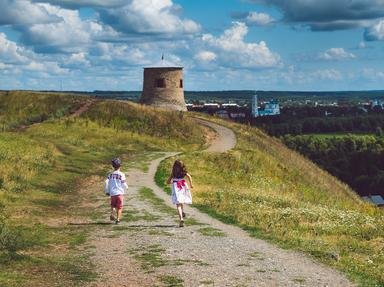Quiz Answer Key and Fun Facts
1. The Norman conquest of England
2. Signing of the Magna Carta
3. Start of the Hundred Years' War
4. Birth of Leonardo da Vinci
5. Christopher Columbus sets sail to America
6. Dutch East India Company is formed
7. The dawn of the Industrial Revolution
8. "The Communist Manifesto" is published
9. The Panama Canal opens
10. The Stock Market crashes
Source: Author
pollucci19
This quiz was reviewed by FunTrivia editor
looney_tunes before going online.
Any errors found in FunTrivia content are routinely corrected through our feedback system.
